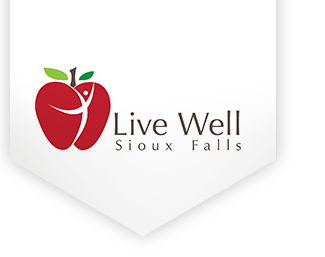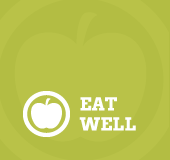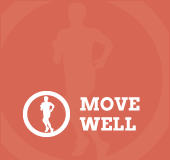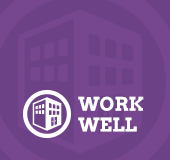Celebrating National Nutrition Month
Mar 02, 2022

Special thanks to Falls Community Health dietitian Gavin Van De Walle, MS, RDN, LN, for this article.
Every March marks National Nutrition Month, an annual campaign created by the Academy of Nutrition and Dietetics, the professional association that represents registered dietitians.
This month is a great time to learn about making informed food choices and developing healthful eating and physical activity habits.
Week 1: Eat a variety of nutritious foods
The core elements that make up a healthy dietary pattern include:
- Vegetables of all types, including beans, peas, lentils, starchy, and nonstarchy
- Fruits, especially whole fruits
- Grains, at least half of which are whole grain
- Dairy, including low-fat varieties and fortified plant-based beverages as alternatives
- Protein, including lean meats, poultry, eggs, seafood, beans, peas, nuts, and seeds
- Oils, including vegetable oils and oils in foods like seafood and nuts
Aim to include healthful foods from each of these food groups in your daily diet.
Week 2: See a registered dietitian nutritionist (RDN)
Every RDN is a nutritionist but not every nutritionist is an RDN. The title “nutritionist” is not regulated in a handful of states, meaning anyone can call themselves a nutritionist, even if they have no academic background in nutrition. On the other hand, RDNs are regulated healthcare professionals licensed to assess, diagnose, and treat nutritional problems. RDNs provide medical nutrition therapy (MNT) or nutrition counseling for many medical diseases and conditions such as high blood pressure, diabetes, chronic kidney disease, cancer, and obesity, as well as digestive and liver conditions.
Research shows that nutrition counseling can help prevent, delay, and improve various health outcomes in people with these diseases and conditions. For example, studies have shown that nutrition counseling from an RDN led to significant improvements in blood sugar control, blood pressure, cholesterol, and body weight (1, 2). These improvements can decrease the medications or doses that you may take to manage diabetes or conditions like high blood pressure and cholesterol. Ask your doctor or advanced practice provider for a referral to an RDN today.
Week 3: Plan your meals and snacks
Planning your meals and snacks can help you lose weight, improve your overall health, and reduce mealtime stress. Here are a few tips to get you started:
- Start small, plan out a few meals or snacks for the weeks ahead. You can slowly build upon your plan by adding more meals and snacks as you see fit.
- Emphasize whole foods, such as fruits, vegetables, legumes, whole grains, lean proteins, and healthy fats, while limiting added sugars, refined grains, and saturated fats.
- Invest in storage containers that you can freeze, microwave, and clean with a dishwasher. Glass containers are a good option.
- Batch cook foods that you plan to use throughout the week to save time.
- Use a slow or pressure cooker, which allow for more freedom and hands-off cooking.
Week 4: Create tasty foods at home
The benefits of good cooking and meal preparation skills are important for more than just making delicious dishes. People who frequently cook at home are more likely to have a lower body weight and eat more nutritious diets compared with those who frequently eat out (3, 4).
Eating home-cooked meals also tends to be significantly less expensive than eating out. The meals you make at home don’t have to be extravagant, just make sure to cook with a variety of whole foods. Experimenting with a variety of spices and herbs can also add flavor and offer health benefits. There are countless, easy-to-follow, healthy recipes available online, including here in this website's online recipe center.
Week 5: Put it all together
The final week of National Nutrition Month is where we put it all together. But, the end of March doesn’t mean an end to the healthy habits that you created and implemented. Continue to practice and build off these healthy habits for a healthier you!
Sources:
3. Cooking at Home: A Strategy to Comply With U.S. Dietary Guidelines at No Extra Cost (nih.gov)
4. Association between eating out of home and body weight - PubMed (nih.gov)





















